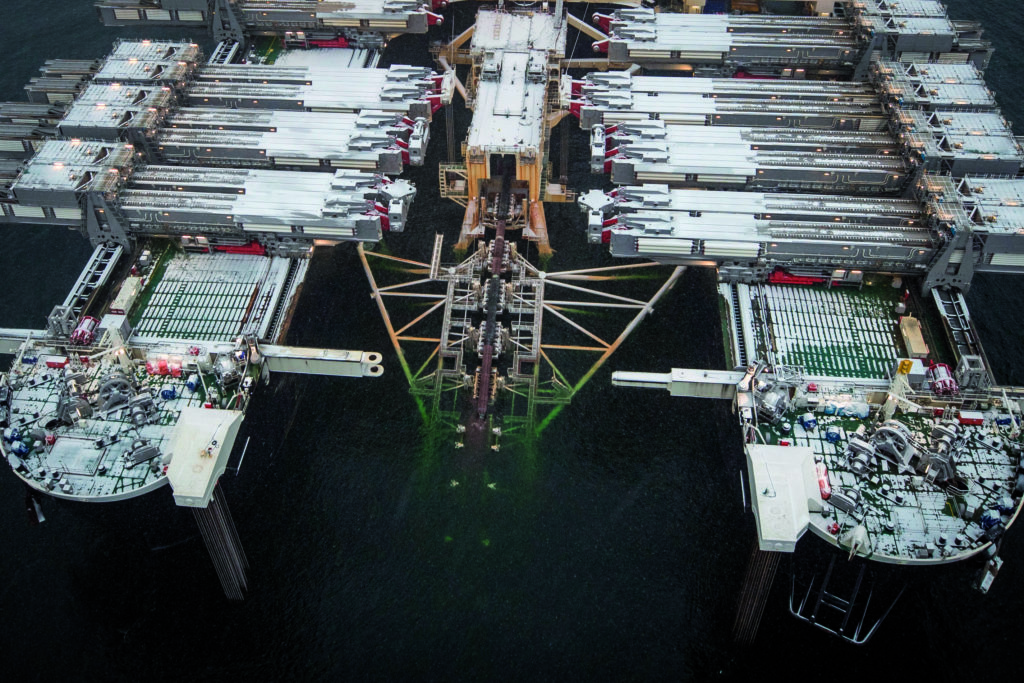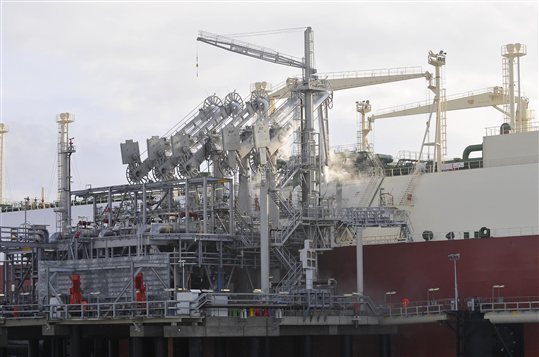
For our European neighbours, there are other big issues around apart from Brexit.
From a German perspective, for example, the pressing question of energy supplies is of greater, long-term strategic importance.
That is why they attach so much significance to the Nord Stream 2 pipeline which will carry gas under the Baltic Sea from Vyborg in Russia to Greifswald in northern Germany.
National interest looks like prevailing over opposition from both within the EU and the United States.
The implications are important for every part of the continent, including the UK.
At present, very little of our imported gas comes from Russia but the more dependent we become on imports from Europe, the less control there will be over that statistic.
Sooner or later, we will take what we are sent.
At present, 40% of gas imports into the EU come from Russia.
Would an increase in that figure give Russia too much power over European economies?
Is Russia ever likely to use that power at the expense of its own credibility as an energy supplier?
These are big geopolitical questions.
It is already a bit late in the day for anyone to try to stop the project.
More than half of the 746 miles of pipeline have already been laid.
Nord Stream 2 has been eight years in the making – and that is a long time in the evolution of relationships between Russia and its neighbours.
Donald Tusk, president of the European Council, has branded the pipeline “a mistake”.
Ukraine and other eastern European countries regard it as a betrayal while, from further afield, US President Donald
Trump has railed against it as “a very bad thing for NATO” and threatened retribution.
Indeed, on his European rampage last summer, Mr Trump declared that Germany would be “totally controlled by Russia because they will be getting 60-70% of their energy from Russia”.
His figures were wildly inaccurate but the thrust of his argument was clear.
The European Commission’s energy policy points in exactly the opposite direction from Nord Stream 2.
Since 2015, and in response to Russian intervention in the Ukraine, they have made it their policy to reduce dependence on Russian gas with a focus on building a new “southern corridor”.
This is based on increased emphasis on pumping gas from the Caspian basin to Europe via Turkey.
These routes would carry Russian gas, but also include supplies from Azerbaijan, Turkmenistan, Iraq
and Iran.
This reminds me of my own time as energy minister when I was involved in a huge diplomatic effort from both the US and UK to establish the Baku-Tbilisi-Ceyhan pipeline.
This was successful and it now carries oil from Azerbaijan to the west.
One of the strategic objectives was to limit Russian and Iranian influence in the region.
In other words, the routes chosen for pipelines have become highly political and Nord Stream 2 cuts across the stated EU priority of reducing future dependence on Russian gas.
However, Angela Merkel remains unimpressed and has stuck steadfastly with the project.
She argues that Nord Stream 2 does not increase its reliance on Russian gas because Germany is also looking to increase its imports of ship-borne gas from countries such as the US.
“Do we become dependent on Russia due to this second gas pipeline?” she asked rhetorically. “I say ‘no’, if we diversify at the same time.”
Russian gas firm Gazprom and five western energy companies, Uniper, Wintershall, Shell, OMV and Engie, are behind the scheme.
Last month, a political compromise was brokered between France and Germany which should be enough to face down continuing opposition from Eastern Europe.
The pipeline, according to this deal, must meet four EU rules, including a telecoms-style unbundling requirement whereby other suppliers would be allowed access to it. However, Germany will be the ultimate arbiter of how the regulations are applied.
Sceptics view the deal as a political face-saver which will allow the project to proceed without formal objection from the EU. The final text has not been published and it still needs to be formally approved by governments and the European Parliament which seems likely with French and German support.
Denmark, which has an interest through territorial waters, has still to agree but will probably fall in with a “European solution”.
If they do not, the Nord Stream 2 consortium has threatened to change the route which would involve delay but not cancellation.
If Denmark approves, construction should be completed by the end of this year.
It is a fascinating example of the interplay between pragmatic, national interests – particularly those of Germany – and energy-led geopolitics in which Russia, to the great irritation of its critics, holds many of the cards in the form of apparently unlimited natural resources.
Leaving aside these wider issues, the question for the UK is whether it really makes sense to become so dependent on imported gas – wherever it may come from in the short term. Yet that’s the fall-back position of current energy policy.
With the coal-fired generation due to be finally obliterated within a few more years, in the name of carbon reduction, it does seem odd that so much future reliance is to be placed on another fossil fuel for our energy security.
Personally, I do not worry too much about Russia’s reliability as a supplier to Europe or about its longer term use of energy diplomacy to further its strategic objectives. There will be many twists and turns along that route before anything very significant happens.
It seems that the EU is on the verge of reaching the same reluctant conclusion.
But if a consequence of Brexit is that we opt to become less reliant on an EU-wide energy strategy and more focused on maintaining our own domestic generation, it will be no bad thing.
Brian Wilson is a former UK energy minister
Recommended for you
